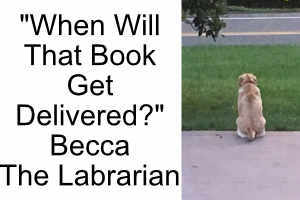Bob Mayer's Blog, page 67
July 25, 2018
How The Jefferson Allegiance Was Used Against FDR
 Here is an excerpt from the book, The Jefferson Allegiance, where it is used to halt President Franklin D. Roosevelt.
Here is an excerpt from the book, The Jefferson Allegiance, where it is used to halt President Franklin D. Roosevelt.
This book was a #2 national bestseller at Barnes and Noble when it came out!
18 February 1945
President Roosevelt sat at his friend’s deathbed, aware that soon someone would be sitting by his. He felt the slightest movement through the wheels of his chair. The USS Quincy, named after the birthplace of two Presidents, was one of the new Baltimore Class cruisers churned out by the United States since the start of World War II. The sea off the coast of Algiers had minimal effect against its heavy metal sides.
The man in the bed, Major General Watson, had been by Roosevelt’s side through the entire war. To lose him now, with the end in sight, deeply saddened Roosevelt, sapping the satisfaction from the accomplishments of the past three weeks. Via the Quincy he’d met Churchill in Malta on the 2nd of February, Stalin and Churchill at Yalta after that, then King Farouk, Emperor Haile Selassie and Saudi Arabian King Ibn Saud on the Great Bitter Lake a few days ago.
Watson had collapsed after they passed through the Suez Canal and not regained consciousness, nor was he likely to according to Roosevelt’s personal doctor. Roosevelt’s hope was that his friend would last until they got back to the States so that he could accompany him back to his home, adjacent to Monticello in Virginia. Roosevelt had stayed at Watson’s Retreat at Kenwood numerous times during his presidency, often making the quarter mile journey next door to Jefferson’s house in the company of Ed Watson and his wife.
The hatch to the cabin swung open and General Marshall came inside, securing the heavy metal door behind him.
“George,” Roosevelt acknowledged.
“Mister President.” Marshall came over and looked down at Watson. “No change?”
“I am afraid not.”
“The Ambassadors will be on board shortly,” Marshall said. “Your briefing for them is prepared.”
The last thing Roosevelt felt like was another meeting. But briefing his ambassadors to the United Kingdom, France and Italy, on the agreement at Yalta was imperative. “I’ll be ready.” His hands were gripping the arms of his wheelchair. “I’ve known Ed a long time.”
Marshall took a chair from the tiny desk in the cabin and settled his bulk into it. “He was in Washington on and off for decades. Wasn’t he an aide to President Wilson?”
Roosevelt felt uncomfortable discussing Ed as if he were not here. “He’s been with me since thirty-three,” Roosevelt murmured. “Longer than anyone else except Eleanor.”
“I was talking with General Watson last week about something interesting,” Marshall said.
Something in the General of the Army’s tone roused Roosevelt out of his melancholy. “And that was?”
Marshall leaned back in the metal chair and waited as ship’s orders were broadcast throughout the cruiser, and then relative silence fell once more. “In ancient Rome when a general or emperor won a great victory, there would be a Triumph in Rome when they returned. A great procession into the city to celebrate the victory.”
Marshall paused, then continued. “General Watson reminded me of something. He said that the victorious leader, riding in a chariot, had a slave standing behind him. The slave held a wreath over his head and whispered in his ear: ‘Respice post te! Hominen te esse memento.’”
“My Latin is rusty,” Roosevelt said dryly.
“It means: ‘Look behind you! Remember that you are but a man.’”
“A warning,” Roosevelt said, arching an eyebrow.
“A reminder,” Marshall said mildly. “Your cousin, Teddy, made a promise in nineteen-oh-four, not to run again in oh-eight. He kept that promise. But he did run in nineteen twelve under his own Bull Moose platform. He won all but two of the Republican Primaries, but still lost the nomination at the convention. Have you ever wondered why he lost that nomination?”
“My cousin and I were never on such an intimate level of discourse.”
Marshall nodded toward the figure in the bed. “You know General Watson is one of the Philosophers, of course?”
Roosevelt put a hand on the left wheel of his chair and pulled back, turning to face the head of the Armed Forces. “Yes.”
“He told me that your cousin lost the nomination because the Philosophical Society opposed him.”
“But Teddy still ran on his own ticket,” Roosevelt pointed out. “Damn near won it all because he was supported by the Cincinnatians. Most votes anyone outside of the two parties has ever received. Beat out the Republican candidate who’d been nominated.”
“But he didn’t win. Wilson did.”
Roosevelt glanced at the man in the bed, then back at the man in the chair. “True.”
“You’ve been elected four times,” Marshall said. “Twice as much as any other President. You got us through the Depression and through the war. The end is in sight.”
“It is,” Roosevelt agreed, waiting for the bottom line, knowing that Marshall was maneuvering the way a politician would, not a general. Roosevelt also knew that the five star general was telling him what Watson would have, if he could. Those trips to Monticello had not been without their lessons.
Marshall continued. “In thirty-nine, despite the country’s neutrality, you declared a state of limited national emergency. There is no such term in the Constitution or even in subsequent laws passed by Congress. In March of nineteen forty-one, you got Congress to pass the Lend-Lease program.”
Roosevelt pulled out his cigarette holder and loaded it. “Are you telling me my accomplishments or my crimes?”
“Both.”
Roosevelt chuckled. “Do you know how I got Lend-Lease through Congress?” He didn’t wait for an answer. “I had my people push it through while sixty-five House Democrats were at a luncheon.”
Marshall didn’t seem to appreciate the humor. He continued. “In May of forty-one, when we still weren’t at war, you dropped the ‘limited’ from the state of emergency and declared a state of unlimited national emergency. Under this, you could, and did, organize and control the means of production, seized commodities, deployed military forces abroad, imposed martial law, seized property, controlled all transportation and communication, regulated the operation of private enterprise, and restricted travel.”
Roosevelt spread his hands as an innocent man would. “Would you have preferred I had not done those things?”
Marshall pulled a lighter out and lit the President’s cigarette as he brought it to his lips. “No, sir. They were necessary to win the war.”
“And I told Ed that I’d restore all our liberties as soon as the war is over.”
“Yes, sir,” Marshall agreed. “And that is why the Philosophers have not taken action despite the unconstitutionality of many of your actions. The Jefferson Allegiance remains in check.”
“So what is the problem?” Roosevelt asked, more sharply than he intended.
Marshall went over and swung open one of the small portholes to let fresh air in. “The recent conferences, sir.”
“I thought they went quite well.”
Marshall blinked. “Sir. Stalin is a thug. A despot. You and Churchill handed him Eastern Europe on a platter.”
“He promised to hold elections,” Roosevelt said. “More importantly, even you agreed that we need the Russians for the final invasion of Japan.”
“I do agree with you on that,” Marshall allowed. “But it went too far. You gave up Poland. You agreed that citizens of Poland and Russia would be repatriated whether they wanted to or not. You gave Stalin practically everything he wanted.”
“Stalin agreed to join the United Nations once we form it,” Roosevelt countered.
Marshall appeared not to hear. “And the meeting with King Ibn Saud. Sir, there are great strategic implications in the Middle East for the future. Both in terms of the displaced Jews, but more importantly, the oil. Japan went to war with us when we embargoed their oil. The Germans went into Russia for the oilfields. Oil is the key. I fear we’re setting up problems that are going to take generations to untangle.”
“You say ‘we,’” Roosevelt noted, “but you mean me.”
“Yes, sir.”
Roosevelt nodded ruefully. “Do you think I don’t know that?” He nodded toward the comatose General in the bed. “I hope I go quickly.”
“Sir, Stalin took too much away from Yalta. And Ibn Saud too much from the Great Bitter Lake conference.”
“We need the Russians for Japan—“ Roosevelt began, but Marshall leaned forward and whispered.
“Sir. We have the Manhattan Project.”
“If it works,” Roosevelt replied. “That’s a mighty big ‘if’ to roll the dice on the lives of millions of American servicemen. Frankly, I’d rather it be Russian blood spilled in Japan than American.”
“Sir, we must look beyond the end of the war and—“
“Please,” Roosevelt said in a low voice. He pulled the remnants of his cigarette out of the holder and slid another in, then extended it to Marshall who dutifully lit it. “I can’t see beyond the end of war, George. It’s been thirteen years. I’m tired. I’m sick. My friend is lying here dying. I’ll be gone soon enough. Enact your Allegiance if you want, but by the time you do, I doubt there will be a need.”
Roosevelt leaned his head back against the rear of his wheelchair. “I am looking behind me. And I am but a man.”
In two days– how it was used against President Kennedy.
July 23, 2018
How The Jefferson Allegiance Was Used Against Teddy Roosevelt
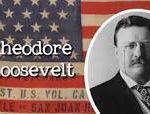 Here is an excerpt from the book, The Jefferson Allegiance, where it is used to halt President Roosevelt– by his daughter!
Here is an excerpt from the book, The Jefferson Allegiance, where it is used to halt President Roosevelt– by his daughter!
This book was a #2 national bestseller at Barnes and Noble when it came out!
4 March 1905
President Theodore Roosevelt listened to the sounds of revelry from the ballroom with deep satisfaction. He had the people’s mandate now. Even though he’d been President for three years, ever since McKinley was struck-down by an assassin in Buffalo in 1901, he’d felt a degree of lame-duck status. He’d held power because of a single bullet, not the will of the people. At least that’s what some had whispered. Not swearing his oath of office on a Bible after McKinley expired had also caused great controversy, an oversight he had not repeated earlier today.
“Father.”
Roosevelt’s shoulders slumped as he heard the familiar voice. He didn’t bother to turn. “Yes, Baby Lee?”
“I come bearing greetings,” Alice Roosevelt said.
Roosevelt finally turned and faced his daughter. She was his first born, but he had spent little time with her over her twenty years of life. He supposed that had contributed to her independent spirit, to the point where many considered her out of control. Sometimes he regretted abandoning her to relatives after her mother, his wife Alice, died two days after her birth. But on the same day, his own mother had died, and the dual blows had been too much to take. He’d headed west, losing himself on the frontier for several years with his grief.
“From whom?” Roosevelt asked. Sometimes he missed those days, riding with Sheriff Bullock of Deadwood, hunting, ranching and just being out in nature. Almost as much as he missed his first wife. He never used her name and thus he never used his daughter’s given name, something he knew irritated her, but he could not bear the pain.
Alice was draped in a silk dress, risqué to say the least. Roosevelt knew better than to say anything to her about it. He’d been asked once by a visitor, after Alice interrupted a meeting in the Oval Office for the third time, whether he could control her. He’d answered truthfully: ‘I can either run the country or I can attend to Alice, but I cannot possibly do both.’
“From the American Philosophical Society.”
Roosevelt stiffened, focusing on his daughter. “What do those old fools want?”
Alice almost twirled, the silk catching the light. She’d bought enough of it on the recent junket to Japan and China to make a thousand dresses. He did have to admit, though, that she had done well diplomatically, enchanting the Emperor of Japan and the Empress Dowager of China. Of course, she’d also jumped into the ocean liner’s swimming pool fully clothed along with some fool congressman. Wherever she went, scandal followed.
“They are not all old fools,” Alice said.
“Just tell me what they want so I can get back to the celebrations,” Roosevelt said, looking past her to the door leading to the election party.
“Ah, father,” Alice said, coming close and looking up at him with soulful eyes. She had inherited her mother’s beauty, and sometimes he wondered if that’s why he kept his distance from her—the memory was too sharp, the pain too deep. He averted his gaze.
“Yes?”
“I know this is your party, Father,” she said. “But really, you’d want to be the bride at every wedding, the corpse at every funeral, and the baby at every christening. You like the attention.”
“The old Philosophers,” he prodded, trying to get her back on task. Her tongue was as sharp as her wit, and he bore many a scar from both.
“As I said, and you did not hear, being occupied with your own thoughts as always, they are all not so old anymore. In fact, one is quite young. The youngest ever elected Chair.”
“What fool did they pick?”
“And not just the youngest,” Alice said, with a smile that lit up the room, “but also the first woman.”
Roosevelt felt an icy feeling grow in his gut, much as he had felt in Yellowstone the first time he faced a grizzly. “They didn’t.”
“They did.”
Roosevelt closed his eyes and sighed. This was the last thing he would have expected. Which is why, he knew, the guardians of the Allegiance had done it. “What do they—you– want?” he demanded through gritted teeth.
Alice hopped up and sat on the lid of a grand piano, her legs dangling, exposing too much ankle. “We know you inherited the Spanish-American War after McKinley’s untimely departure from this mortal coil. We were not pleased with the ‘causus belli’ for that war. ‘Remember the Maine,’ indeed.” She peered at her father. “You were under-secretary of the Navy at the time. Perhaps you know something about that event you have not shared with your own daughter?”
“It was a Spanish mine,” Roosevelt snapped. “There is nothing more to it.”
“A most convenient mine,” Alice said. “We sense the long reach of the Cincinnatians.” She waved a hand, dismissing that topic. “The Allegiance has only been invoked once and even then, didn’t have to be used. Another President was warned. We see a dangerous trend, though. Jefferson, Polk and Lincoln all superseded their authority. Johnson did too, but he got impeached, simpleton that he was. The Cincinnatians have pushed this country into illegal and unjust war more than once in their desire for an American Empire. Much like the Romans did so long ago.”
Alice continued. “But you have to allow those three earlier Presidents their motives. Both Jefferson and Polk saw a threat to our country’s commerce: Jefferson not wanting to lose access to New Orleans, and ending up with much more than he could have ever dreamed of in territory; Polk wanting access to San Francisco, and also ending up with much than he too could have ever dreamed of. Lincoln’s motivation was to preserve the Union at any cost, although one might see an inherent paradox from the Founding Fathers in that. The Confederacy was, after all, exercising its states’ rights to separate from the Union. Something Jefferson would most likely have applauded.”
Roosevelt knew this was revenge. For all those years he’d shuttled her from relative to relative. He’d once tried to send her to a very proper school for girls in New York City, and she had sent back a letter promising: ‘If you send me, I will humiliate you. I will do something that that will shame you. I tell you I will.’
And now she had done something far, far worse.
“You’ve won four more years, Father,” Alice said. “Congratulations. But we know what you have done and what you want to do. The Philippines. Colombia. Honduras. The Dominican Republic. Cuba. The Canal you want to have built.” She laughed, a most pleasant sound, contrasting the words that came from her mouth. “’Speak softly and carry a big stick. You will go far’?”
“What do you want?” Roosevelt finally gave in, facing her directly.
“Jefferson wrote ‘Conquest is not in our principles. It is inconsistent with our government.’ You seem to take the opposite point of view, Father.”
“What do you want?”
“We know you are popular. We know confronting you with the Allegiance would be dangerous for the country. So we offer a compromise. You get four more years. But we want you to publicly promise tonight, this very evening, that you will not run for re-election in nineteen-oh-eight.”
Roosevelt took a step back, as if he’d been hit by a bullet. “You joke.”
“I’m afraid not, Father. We will confront you if you don’t make the promise. It will be a bloody mess, for both you and the country, if the military has to act after you are confronted. You can spend the next four years enjoying your Presidency or defending it.”
“A lot can happen in four years,” Roosevelt said.
Alice nodded and hopped off the piano. “I know, Father. But I also know you. I told the other Philosophers that if you gave your word, you would keep your word.”
A muscle rippled along the side of Roosevelt’s jaw.
Alice hooked her arm through his and propelled him toward the door. “Come. Let’s have you make the announcement, then join the party.” She paused just before the door and looked up at him. “After all, Father, four more years; certainly enough time for you to enjoy the Presidency. And then you can go back to civilian life and enjoy your family. Correct?”
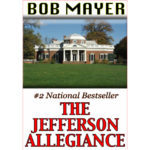 With those last bitter words she shoved open the doors to the waiting crowd, that cheered upon seeing the newly elected President.
With those last bitter words she shoved open the doors to the waiting crowd, that cheered upon seeing the newly elected President.
In two day– how the Jefferson Allegiance was used against Franklin Roosevelt.
Don’t forget to check out my freebies page where there are free ebooks, audiobook short stories and excerpts and free slideshows.
July 21, 2018
How The Jefferson Allegiance Was Used Against President Lincoln
 Here is an excerpt from the book, The Jefferson Allegiance, where it is used to halt President Lincoln at the end of the Civil War.
Here is an excerpt from the book, The Jefferson Allegiance, where it is used to halt President Lincoln at the end of the Civil War.
This book was a #2 national bestseller at Barnes and Noble when it came out!
13 April 1865
Abraham Lincoln was tired to his core, and had told his secretary he would not be seeing any more visitors today. He sat in his office, eyes closed, hoping the headache that had troubled him all day would go away. He should be rejoicing, partaking in the fruits of a bitterly won victory.
Just ten days previously, Richmond had fallen. Then four days ago, Lee had surrendered his Army of Northern Virginia. The whereabouts of Jeff Davis and the remnants of the Confederate government were unknown, but there was no doubt they were in full flight.
The Civil War was over.
At a cost Lincoln could hardly bear to contemplate. Ever since the rebels had fired on Fort Sumter, four years and one day ago, the telegraph wires had brought the grim numbers. Over a quarter million Union soldiers dead. No one knew how many Southerners, but given Grant and Sherman’s ruthlessness the past year, Lincoln had no doubt the Confederate losses were about the same.
What scared him, kept him awake at nights and caused his current headache, was realizing that a larger job loomed—mending a broken country. One could win a war of arms, but it was the hearts and minds that concerned Lincoln. There was much bitterness and anger on both sides, and he knew he would have to walk a narrow and treacherous path to bring the country together.
He’d laid the groundwork years ago when he assembled his first cabinet: what some had dubbed ‘the cabinet of rivals.’ He’d tapped three men, opponents for the Republican nomination, and bitter enemies: William Seward, Salmon Chase and Edward Bates to fill positions in his administration as Secretary of State, Secretary of the Treasury and Attorney General, respectively. The move had shocked everyone in Washington, including the three men. They’d demurred initially, and Lincoln recognized in them the same disdain others in the Capitol had for his rustic background and lack of political experience, especially since he’d been sent packing from Washington after only one term in Congress. Lincoln knew, though, that bringing the country together after four years of war was going to take much more than bringing respect and cooperation from three such strong egos. He also knew a few of the men were Cincinnatians, a price he had been willing to pay to keep the country together.
Lincoln heard the private door to the Oval Office open. There were only five people who were allowed to come through that door. He hoped it was Mary, but the heavy clump of boots informed him the hope was in vain. More problems.
He opened his eyes and relaxed slightly. The mighty Ulysses. Still glowing from the surrender at Appomattox. As always, Grant held out a cigar as he settled into the seat across the desk from Lincoln.
“No, thank you, General,” Lincoln said, as always.
“The city is alive, President,” Grant said. “You should go out and pick up some of the energy. Bask in the glow of victory.”
Lincoln grimaced. “Basking is not my forte.” Grant had two modes: in battle and energized, or morose and drunk. The drinking had been a large issue, but Lincoln took results wherever he could find them. However, it was hard to tell which mode the General was in this evening. Lincoln could smell the alcohol, but Grant appeared strangely animated. Victory could do that, Lincoln supposed.
Grant fiddled with his cigar, seemingly uncertain, something Lincoln had never seen in the man. His decisiveness had been his greatest attribute. “Is there something amiss?” Lincoln asked.
“Sir—“ Grant began, but halted.
“Go on,” Lincoln said, feeling his heart sink, knowing this was to be another burden of some sort.
“There was a meeting earlier today,” Grant said. “I met with the Chair and the Philosophers.”
Lincoln stiffened. “And?”
“They are very concerned.” Grant had his eyes downcast. “The war is over. Of that there is no doubt.” Grant lifted his dark gaze, meeting Lincoln’s eyes. “I told them to wait. To let things settle down. But they wanted me to talk to you.”
Lincoln knew what Grant was talking about, but he still felt a surge of anger. So soon. He had not expected this so soon. “I did not seek power for glory or riches. You know that better than most. I took the steps I did for the Union. And I didn’t hide them.”
Lincoln knew he had done many things in violation of his oath of office and the Constitution. He’d unilaterally expanded the military; suspended habeus corpus; proclaimed martial law; had citizens arrested; seized property; censored newspapers; and, perhaps most galling to many, issued the Emancipation Proclamation. All without consulting Congress. He imagined old Polk would be laughing heartily if he could have seen the events of the last four years.
“I understand that, Mister President,” Grant said. “That’s why I have gotten the Chair to keep the Allegiance in hiding. I told him it would not be needed. Not now, nor in the future. Once peace has taken hold, I am sure we will be back to where we were before the war.”
It will never be the same, Lincoln thought, but did not say. He pressed a long finger against his temple, trying to calm the pounding in his head. “You are quite correct. The Allegiance will not be needed. I will relinquish all those extra powers I have assumed in the name of the emergency as soon as the country returns to normalcy.”
“And the Cincinnatians?”
“They too will be in check. I needed their support for the war, but not any longer.”
Grant heaved a sigh of relief. “Very good, sir. I will tell the Chair.” Grant stood to depart.
“General.”
Grant turned. “Yes, sir?”
“Remember this meeting. I once walked into this room with the Allegiance years ago. You just walked in with the threat of the Allegiance. Some day if you sit in this room, remember what happened, and remember the dangers of the power of this office and of the Cincinnatians.”
Grant removed the cigar from his mouth and nodded. “I will, Mister President.”
“Very good.” Lincoln remembered something. “Mary wants to go to the theater tomorrow night. Would you and Missus Grant like to join us?”
“I will consult with her, but I see no reason why we would not.” Grant turned for the door.
“Very good,” Lincoln said.
Grant paused as he opened the door. “What theater, sir?”
“The Ford Theater.”
In two days, how it was used to stop Teddy Roosevelt. By his own daughter!
July 19, 2018
How The Jefferson Allegiance Was Used To Stop President Polk
 Here is an excerpt from the book, The Jefferson Allegiance, where it is used to halt President Polk when he had imperial aims.
Here is an excerpt from the book, The Jefferson Allegiance, where it is used to halt President Polk when he had imperial aims.
This book was a #2 national bestseller at Barnes and Noble when it came out!
22 August 1848
President Polk figured it had to be a hell of a lot hotter down south for the Mexican President than even Washington in the summer, although some might question that. A bead of sweat dripped off Polk’s nose and onto the copy of the Treaty of Guadalupe Hidalgo which he had been reading one more time, savoring the terms, as if he could feel the actual growth in the United States that the Treaty decreed.
Polk was staying in the White House, an insane decision for anyone who had survived a Washington August. But there was work to be done, and even the specter of yellow fever couldn’t persuade Polk to head to the cooler mountains as most Washingtonians with means had done. He could hear the mooing of cows from the large open pasture to the south of the White House, and the occasional rattle of a passing carriage, but otherwise the capitol was still.
Polk turned his chair to a map, his most prized possession since coming into office. He had made four promises when elected to office and the map represented two of them:
-Acquiring some or all of the Oregon Territory.
-Purchasing California from Mexico in order to have access to the port of San Francisco to open trade to the Pacific.
Drawn in fountain pen on the map by his own hand were the successful results of those two promises: the Oregon Territory and a huge chunk of land including Texas and the southwest from the Rocky Mountains to the Pacific Ocean, encompassing all of the California Territory.
It was the second largest expansion of the United States since Jefferson had purchased the Louisiana Territory. It was Manifest Destiny and Polk had done it, stretched the United States from Atlantic to Pacific. That he had done it with blood via a war some considered imperialistic wasn’t something he concerned himself with.
Polk leaned back in his chair and barely noticed as he wiped the sheen of sweat off his forehead. He looked over, irritated, as his secretary cracked open the door and stuck his head in. “Sir, there are some gentlemen here to see you.”
Polk waved. “Send them in.” He stiffened as he saw former President John Quincy Adams leading three men into the room: General Zachary Taylor, who was getting altogether too popular for winning the war Polk had instigated with Mexico. There were more than whispers that Taylor wanted to run for President under the banner of the opposing Whigs.
There was also a tall, rangy freshman Congressman named Lincoln, who had been a minor thorn in Polk’s side during the run-up to the war. The press had dubbed him ‘Spotty’ Lincoln for the resolution he had tried to get past Congress, demanding that Polk “show me the spot” where American blood had been spilled that precipitated the War with Mexico, claiming it had happened on Mexican soil, not American. The resolution had failed, and Polk was determined to crush Lincoln’s political career.
Lastly, there was old General Winfield Scott, who had opened the way to the ‘Halls of Montezuma’ as the press liked to dub it.
Polk stood, focusing on Adams. “Sir, what brings you here?”
Adams had a black, wooden tube in his hand, which he placed, to Polk’s chagrin, right on top of the Treaty of Guadalupe Hidalgo. “Let me be frank,” Adams said. “You began this most horrid of wars by direct provocation of the Mexicans. Generals Taylor and Scott, while supporting you publicly, verify that privately.”
Polk glared at the two generals, but they seemed impervious.
Adams continued. “You used the war to further your Imperial goals, which is inconsistent with our Constitution. And you are a front man for the Cincinnatians.”
Polk slammed a fist onto the map. “We now stretch from sea to sea. We won the war. We—“
Adams cut him off. “Mister President, I don’t care what the immediate results are. You manipulated the military for the agenda of a select few. As Congressman Lincoln noted, you declared war the way a monarch would, not a President.”
“I dealt with the problems I inherited with the office,” Polk argued. “Texas was annexed by Congress four days before I took office. The Mexicans had already promised war if that happened. Conflict was inevitable.”
“Not if you had used diplomacy instead of the army,” Adams countered. “You sent General Taylor and his troops into disputed territory without consulting Congress.”
“This is true,” Taylor said.
“Indeed it is,” echoed Lincoln.
“But Congress voted for war,” Polk said.
“On the basis of a fake ‘causus belli’,” Lincoln said.
Scott finally spoke up. “The army is sick of such a war. We lost more men to disease in that God-forsaken place than the enemy. It cannot happen again.”
“How dare you all—“ Polk began, but Adams cut him off.
“Read this, sir.” He picked up the wooden tube and screwed off the end. He pulled a scroll out and unrolled it on top of Polk’s map.
Polk leaned over and read the few sentences. Startled, he looked up at Adams. “What—“
“Look at the signatures,” Adams commanded and Polk obeyed. Before the current President could say anything, the former President continued. “The War is done. The treaty ratified. You’ve had your glory. You have a year left in office. You will not start another war. You will not violate the treaty to grab more land from Mexico or cross swords with the British in the Oregon Territory. You will not run for election again. You will tell your fellow Cincinnatians they have what they sought and that is enough.”
Taylor spoke up. “Or else we will enforce the Jefferson Allegiance as you have just read.”
“Do you understand?” Adams asked. “You will abide strictly by the Constitution for the remainder of your term. Clear?”
Polk weakly nodded, slumping down into the chair where just minutes ago, he had been reveling in his achievements. What they had just dictated meant he would be the first President not to seek re-election since the founding of the country. It was unheard of. But so was the document he had just read. He numbly watched as Adams rolled the scroll and stuck it back in the tube. The men turned and marched out of the room leaving the President alone.
President Polk grabbed the map and tore it to shreds.
Tomorrow: How it was used against Abraham Lincoln.
July 18, 2018
“Damn it, Darlene. Stop watching that fake news.”
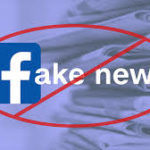 The opening to Area 51: Invasion came to me because, well, it’s obvious.
The opening to Area 51: Invasion came to me because, well, it’s obvious.
THE FIRST DAY: ARRIVAL
MARFA, TEXAS
“Damn it, Darlene! I told you not to watch that fake news. There aint no such thing as aliens. All of this has been bullshit so the government can come get my guns. Turn it off. And get your damn dog off the couch.”
“I don’t think so,” Darlene muttered watching the images from Russia and the massive alien spaceship. “That’s a lot of work just to come and get your guns, Bobby.”
Thin, almost starved-looking, Darlene had badly dyed reddish hair self-cut shaggy short. Her arms scrolled with tattoos. She wore ripped jeans and a red t-shirt with the Marine Corps emblem on the front. She was sitting cross-legged on the nice leather couch, Bobby’s only legacy from his stepmom, peering at the TV. It was all kinda confusing cause some of the feeds would go blank and the news folk were scrambling to figure things out.
One hand absently scratched Rex’s head. The dog was a mutt, something German Shepherd/Chow/Mexico street fighter. She’d found him wandering about a few months ago and viewed him as a good luck charm and more trustworthy companion than her quasi-boyfriend of expediency.
Bobby didn’t like bad news, or fake news as he called it. “I told you to turn the damn thing off!” He grabbed his AR-15 off the pegs by the door to the trailer, single-wide, but some day she’d dreamed of double-wide as long as she had to stay here. Looked like that dream wasn’t gonna come. All bad things must end.
“Don’t you dare!” Darlene yelled as Bobby leveled the rifle at the TV.
It had a fancy sniper scope that had cost a week and a half of her waitressing tips and initiated a terrible row between the two of them as Darlene didn’t see the need, given Bobby only shot cans, plus he didn’t even know how to zero it in. The fight had been more a drunken brawl, followed by reasonably decent make-up sex. That still didn’t make up for the money, but it didn’t seem that was going to matter now either.
Bobby fired four rounds, fast as he could pull the trigger, blasting the screen.
“Great shooting, numb-nuts,” Darlene said. “Shoulda saved your ammo. I think we’re gonna need it.” She didn’t point out he hadn’t needed that damn, stupid scope to hit the TV. Rex growled at Bobby. “Easy,” Darlene said. “Now aint the time for our plan. Gotta wait boy.”
“That plan thing aint never funny,” Bobby said. “You and that damn dog.”
“Why do you think it’s a joke?” Darlene stomped out of the trailer in her heavy black boots, Rex at her heel. She stood in the ‘front yard’ comprising of desert and pulled the smokes out of roll on the left arm of her t-shirt.
“You should quit,” Bobby said from inside the nebulous safety of the ripped screen door, but his voice was a bit subdued, as it always was after he did something stupid, which was much more often than Darlene liked.
“Don’t matter now,” Darlene said, staring out over the desolate west Texas landscape. “Shoulda bought that double-wide, Bobby, when I told you to. At least we’d have been going out happier.”
EARTH ORBIT
While the massive Swarm Battle Core settled into high orbit, 20,000 miles above the Earth’s surface, the results of the Metamorphosis were walking, crawling, swimming, slithering, stalking and winging their way to designated warships for the pending drop on the planet.
The Core’s orbit was opposite the planet’s rotation. For the first go-around, the Core was traversing the northern hemisphere, just above the Tropic of Capricorn as data indicated it would be the source of most Scale opposition. Weapons systems on the surface of the Core were powered up.
It was all standing operating procedure for a reaping.
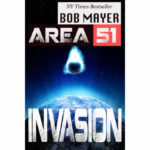 Even 20,000 miles up, the sphere was massive. Six thousand miles wide at the center and four thousand at the polar axis, it was much larger, and much, much closer, than the moon. As the Core orbited the planet, it began targeting procedures to negate potential threats prior to drop. Numerous sites had already been determined due to intercepts across the array of electromagnetic transmissions from the planet. More would be determined as the Scale life, in this case humans, reacted.
Even 20,000 miles up, the sphere was massive. Six thousand miles wide at the center and four thousand at the polar axis, it was much larger, and much, much closer, than the moon. As the Core orbited the planet, it began targeting procedures to negate potential threats prior to drop. Numerous sites had already been determined due to intercepts across the array of electromagnetic transmissions from the planet. More would be determined as the Scale life, in this case humans, reacted.
There was no rush.
The result was inevitable.
How Hamilton And Jefferson Agreed on The Jefferson Allegiance
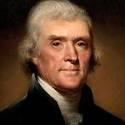 Here is an excerpt from the book, The Jefferson Allegiance, where Hamilton and Jefferson agree to write it.
Here is an excerpt from the book, The Jefferson Allegiance, where Hamilton and Jefferson agree to write it.
This book was a #2 national bestseller at Barnes and Noble when it came out!
27 July 1803
President Thomas Jefferson waited, no doubt in his mind that Alexander Hamilton was late to prove a point. Hamilton always had to prove a point, even if there was none.
Jefferson was alone in an office in Philosophical Hall on Independence Square in the heart of the nation’s largest city: Philadelphia. Jefferson tipped his chair back, placed his feet on the desk and stretched out his long legs. The ride from Washington had been made in darkness and thus in difficulty, the carriage driver unable to see all the ruts and holes in the road from the United States new capitol to the original capitol.
Thinking of the city he’d come from, Jefferson looked up at the painting of its namesake on the wall. Good old George. Gone less than four years now, one would think the man a saint the way the papers and people still went on about him. Jefferson gave a fond smile, remembering how Washington, in the early days of the Continental Congress, had protested loudly that he did not wish to be Commander of the fledgling Colonial forces, yet somehow had managed to put on his old French & Indian War uniform every day when he came to protest not becoming that which his clothing clearly demonstrated he dearly desired.
Watch what a man does, rather than what he says, Jefferson thought. And Hamilton being late said much.
The door to the room swung open and then slammed shut. Hamilton strode across the room as if he owned it. The way he walked into every room.
Jefferson got to his feet. “Mister Hamilton.” He extended his hand.
Hamilton barely shook the hand, then, without a word, went to the other side of the table and sat down. A breach of etiquette in the presence of the country’s President, but Jefferson knew Hamilton felt brazen, having been the instrument three years ago to swing Congress to vote Jefferson into office over Burr, when the two had been tied in the Electoral College. It had not been a sign of support for himself, Jefferson knew, but Hamilton’s intense distaste of Burr that had been the deciding factor.
“Shall we get to business?” Hamilton said.
Jefferson sat down. He’d considered how to approach this on the ride from Washington. “As you know, I was not present during the drafting of the Constitution.”
Hamilton tapped the top of the desk irritably. “And? Is that your excuse for your recent unconstitutional action regarding the Louisiana Purchase?”
“No,” Jefferson said. “I make no excuse. You are quite correct. It was unconstitutional.”
Hamilton sat up straighter, his eyes narrowing, suspecting a trap. “You admit as much?”
“I just did.” Jefferson held up a hand to forestall his long-time opponent. “I’ll give you my arguments so you can ignore all the tripe in the papers. And then I’ll tell you what I have learned from my own actions, and what I propose, and why I ask for your assistance.”
The line between Hamilton’s eyes got even deeper, but he nodded.
“Briefly then,” Jefferson began. “New Orleans controls the Mississippi. He who controls the Mississippi, controls all our country’s river traffic west of the Appalachians. When I took office, we thought New Orleans was under Spanish Control. What I quickly discovered was that Napoleon, in secret, had gained control of New Orleans from Spain in eighteen hundred. Learning of this, and fearing loss of access to the port, I secretly sent emissaries to Paris to negotiate the purchase of New Orleans.”
Hamilton started to speak once more.
“Please,” Jefferson said. “Hear me out, good sir. I know I did not have the Constitutional right to be doing such negotiations in secret. However, I felt the importance of New Orleans and the danger of an Imperial French presence on our country’s borders superseded my executive limitations, and time was of the essence. I was acting for the greater good.”
Jefferson quickly went on. “I also knew, through my own sources, that Napoleon was in trouble. He was building a fleet of barges to invade England. That was his focus. However, the slave revolt in Haiti was draining his resources, troops and money. The slaves, hard as it might be to believe, were defeating his forces. As they continue to do to this day. I fear the end is close in Haiti, and it will be the slaves who prevail.
“Please believe me when I say my ambassadors only went to Paris to purchase New Orleans. We offered Napoleon ten million for the city and river rights. When Napoleon’s man countered with an offer of the entire Louisiana territory for fifteen million, my ambassadors were astounded, to say the least.”
Hamilton finally got some words in. “I had not heard this about New Orleans. The report was your people went looking for it all.”
“No, sir,” Jefferson said. “But even you will admit it was too great an offer to refuse. It was an offer that ended the French presence on our boundary and doubled the size of our country at less than three cents per acre.”
Hamilton snorted. “But you don’t have the money. Is that why I am here? You finally agree with me on the national bank?”
Jefferson nodded. “Yes. We must have one to finance the purchase.”
Hamilton could not hold back his triumphant smile.
Jefferson continued. “I’ve already directed Treasury Secretary Gallatin to contact you and ask for your help.”
Hamilton shook his head. “Gallatin will want to issue stock for it. He’s already—“
Jefferson quickly cut in. “No stocks. We’ll have a debt as you wish. Gallatin doesn’t like it, but I’ve already given him the order.”
Hamilton’s smile faded, wary. “Then what do you want of me? Absolution of your illegal act in making the purchase in the first place? I could have my people in Congress move to impeach you.”
It was Jefferson’s turn to snort. “You think that would get far?”
Hamilton leaned forward. “Then why did you have me come here in the middle of the night and meet in secret?”
Jefferson placed both hands on the table. “I am not blind to what I have done. I am aware I overstepped my Executive authority. Only two other men have worn the title of President of the United States. General Washington—“ Jefferson used the term he knew Hamilton preferred for the late President, as the two men had served together for many years in uniform—“was a great man. You and I know the nation and Congress would have voted him President for life if he desired it.”
“I wanted him to be President for life from the very beginning,” Hamilton countered.
“That argument was defeated during the writing of the Constitution,” Jefferson said. “And, besides, you know that General Washington wanted no part of staying in power. He desired to go back to Mount Vernon and Martha, and live the rest of his days in peace.”
“He was tired of the heavy burden he bore,” Hamilton acknowledged.
Jefferson saw his opening. “I bear that burden now. And there will be those beyond me who will bear it. Perhaps you. I circumvented Congress on the negotiations for the Louisiana Purchase. It made me recognize that this office that I hold is at the whim of any elected Caesar in Presidential clothing.”
Jefferson could hear the crowing of roosters in the distance as dawn came to Philadelphia, and he waited to see how Hamilton would react.
“What are you proposing, then?” Hamilton asked. “You’re pointing out the obvious: that the checks and balances written into the Constitution aren’t adequate to prevent the Republic from failing. It is flawed. I said so then, and subsequent events have proven me correct.”
“You are correct. And I know what you and your Cincinnatians are up to. I have the votes in Congress to outlaw you and your group as enemies to the state. The bill is already drawn up and my people ready to present it. President Adams got his Alien and Sedition Act passed; I have no doubt I could resurrect the Sedition portion and use it on your Cincinnatians.”
Hamilton leapt to his feet. “How dare you threaten—“
“It is not a threat, Mister Hamilton. It is a negotiation. Please sit down.”
Hamilton did not do so, but he stopped yelling. “What negotiation? What do you want?”
“I want there to be a secret check on power run amok, primarily by the President, but also to prevent a group like your Cincinnatians from toppling the freely elected government or gaining undue influence. To maintain the country as we envisioned and wrote into the Constitution and Bill of Rights.”
“And how do you propose such a secret check be enacted?”
“We’ve already agreed that the Constitution, as currently written, is not sufficient to keep the country on course. Our country has just doubled in size. The United States will grow more and more powerful. As it does, the office of President, by nature, will attract the power-hungry. At a distance, the people have a limited ability to identify Presidents with sufficient emotional stability to ‘know thyself.’ Thus, the office of the President is run by the personality of the man holding it. You’ve seen what I just did with the Purchase.
“At the same time, business will grow. Money will be consolidated in the hands of a powerful few who control that commerce and industry. Your Cincinnatians. It is a repugnant inevitability. That’s a very dangerous thing for a Republic. We don’t want our country to go the way Rome did.”
Hamilton slowly sat down. “You want a new Amendment to the Constitution?”
“No,” Jefferson said. “I’m not stupid, Mister Hamilton. Presenting that admits my own malfeasance in the Purchase. As I said, this must be done in secret. I want you and I, as heads of the two parties, to agree to an Allegiance. The Jefferson-Hamilton Allegiance. We will take this Allegiance back to our parties and get just enough members we trust to sign it in secret to pass, and then I will sign it into law. No one is to speak of it. It will be hidden away. But it will be law and it will be the final check on the President and the power-hungry rich who do not have the country’s best interests at heart.”
Hamilton was silent for a few seconds. “What is this Allegiance you wish to put my name to?”
“Did you know this chair I am in,” Jefferson said, “is the exact same one in which I was seated when I wrote the Declaration of Independence?”
“Show me this Allegiance,” Hamilton snapped, but Jefferson knew his reference to the classic document he had penned was now in Hamilton’s head.
Jefferson walked over to a bookcase and picked up a piece of parchment. He brought it back. Hamilton unrolled the paper. It only took a few seconds to read. “I do not want my name on the title of this.” He looked up. “So this is why you founded the Military Academy last year? I thought that a most strange move for you.”
“I dwell in reality,” Jefferson said. He waited a moment. “Does that mean you agree to the body of the Allegiance?”
Hamilton hesitated. “In exchange for not attacking the Society of the Cincinnati? And establishing the national bank?”
“Yes.”
Hamilton grabbed a fountain pen, dipped it in the ink well, and signed his name at the bottom. “I will bring it back to you with the signatures needed.”
“I know what you’re thinking,” Jefferson said. “You’re thinking what you hold is no great matter. That it would never be enacted. I hope that is true. But it is the ultimate check against a President who seeks to be King, and against your Cincinnatians or any group like it.”
Hamilton rolled up the parchment. He tucked it under his arm and stood. “When I bring it back, and then your people and you sign it, what is to be done with it?”
“Let me worry about that. I will have people appointed to be caretakers. People that can be trusted with such power, desiring none of their own. People that can keep a secret.”
Hamilton laughed. “Remember what old Benjamin said about people keeping secrets. Three might if two are dead.”
Jefferson met his adversary’s eyes. “Let us hope it does not come to that.”
Hamilton gave the half-smile that Jefferson had always interpreted as the man thinking he held the winning hand. Perhaps he did, Jefferson allowed as Hamilton departed. But there was more to Jefferson’s plan for the Allegiance than he had told Hamilton.
Jefferson laughed. And given Hamilton’s insistence, it had a new, simpler name:
Tomorrow– how the Allegiance was invoked against President Polk
July 17, 2018
To Rein In An Imperial Presidency, We Need The Jefferson Allegiance
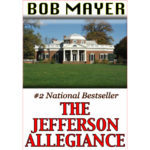 Alexander Hamilton and Thomas Jefferson were political enemies, but they found a common ground: the need to stop a president who runs amok and isn’t impeached.
Alexander Hamilton and Thomas Jefferson were political enemies, but they found a common ground: the need to stop a president who runs amok and isn’t impeached.
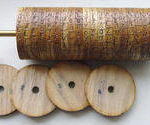 They came up with The Jefferson Allegiance. A secret document signed by a majority of Congress and then hidden away with the location only available by using the Jefferson Cipher.
They came up with The Jefferson Allegiance. A secret document signed by a majority of Congress and then hidden away with the location only available by using the Jefferson Cipher.
Over the course of history the threat of unveiling the document has stopped several Presidents. My blogs over the next few days will show these events.
Often fiction precedes fact. Several of my books have dealt with the Presidency. The Jefferson Allegiance and The Kennedy Endeavor, of course. But there is also The Line, about a military coup unfolding in the vein of Seven Days in May. Then there is Nightstalkers: Book of Truths where the plot revolves around a serum getting loose in the White House where it forces people to tell the truth. That one was very prescient.
Here are some of the facts from The Jefferson Allegiance:
The Historical Facts
If a book be false in its facts, disprove them; if false in its reasoning, refute it. But for God’s sake, let us freely hear both sides if we choose.” Thomas Jefferson. 1814.
In May of 1783, the Society of the Cincinnati was founded. A leading member was Alexander Hamilton, and the first President of the Society was George Washington, before he was President of the United States. The Society of the Cincinnati is the oldest, continuous military society in North America. Its current headquarters is at the Anderson House in downtown Washington, DC. Besides the Society of the Cincinnati, Hamilton founded the Federalist Party, the first political party.
“Can a democratic assembly . . . be supposed steadily to pursue the public good? Nothing but a permanent body can check the imprudence of democracy. Their turbulent and changing disposition requires checks.” Alexander Hamilton. 1787.
Thomas Jefferson was not allowed membership in the Society of the Cincinnati.
“Your people, sir, are a great beast.” Alexander Hamilton. 1792.
In 1802, President Thomas Jefferson, well known for his strong opposition to a standing army, established the United State Military Academy, the oldest Military Academy in the Americas. In 1819, he founded the University of Virginia, the first college in the United States to separate religion from education.
In 1745, the American Philosophical Society (APS), the oldest learned society in North America was founded. Thomas Jefferson was a member for 47 years and its President for 17 years. He subsequently established the adjunct United States Military Philosophical Society (MPS) at West Point with the Academy Superintendent as its first leader. The APS has its current headquarters in Philosophical Hall on Liberty Square in Philadelphia. The MPS appears to have disappeared.
“I am not among those who fear the people. They, and not the rich, are our dependence for continued freedom.” Thomas Jefferson. 1816.
Besides the APS and MPS, Jefferson founded the Anti-Federalist Party.
“The mass of mankind has not been born with saddles on their backs, not a favored few booted and spurred, ready to ride them legitimately, by the Grace of God.” Thomas Jefferson. 1826.
Tomorrow? 27 July 1803, when Jefferson and Hamilton agree to write the Allegiance and why.
July 16, 2018
When I wrote about a military coup it was inconceivable to me that . . . .
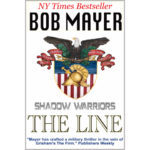 I could end the novel any way but other than the coup being defeated. The Line had my heroes living up to their Oath and stopping the coup.
I could end the novel any way but other than the coup being defeated. The Line had my heroes living up to their Oath and stopping the coup.
Today, I have my doubts that it would be such a bad thing. I swore an oath to defend the Constitution. It appears to me that others who have sworn the same are not living up to their oath. This begins with the President and has spread to a large portion of Congress.
Many of my fellow soldiers, generations of them, have died to keep this country free. To save Europe and South Korea from oppressors. The current administration is blatantly subverting those countries and overtly coupling us with an oppressive and murderous regime in Russia.
Putin has murdered people, including his own. He’s murdered journalists. He’s used a weapon of mass destruction to kill enemies in other sovereign countries; our allies. Russian mercenaries have engaged our troops in Syria. To aid Putin is, without exaggeration, treason.
The time is coming when, if the balance of powers as established in the Constitution do not suffice to save this country, that men and women of loyalty will have to stand up.
I fear for the future of this country. I put my life on the line in the past for it. I will do it again.
AGAINST ALL ENEMIES: FOREIGN AND DOMESTIC.
July 3, 2018
Philadelphia, Vicksburg, Gettysburg, Monticello, Entebbe– Fourth of July
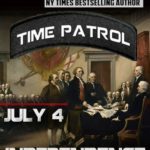 In honor of the Fourth, Independence Day (Time Patrol) is free 3-4 July.
In honor of the Fourth, Independence Day (Time Patrol) is free 3-4 July.
‘The distinction between the past, present and future is only a stubbornly persistent illusion.’ Einstein.
What does it take to change history and destroy our reality? Change history on the same date, 4 July, in six different years. The members of the Time Patrol each travel to those days to maintain our timeline.
Doc travels to the 4th of July, 1776, one of the most important dates in American history where evil forces are at work in Philadelphia to sabotage the Declaration of Independence.
Moms goes to Monticello exactly 50 years later, in 1826. The day on which two of the architects of that document and the country, Thomas Jefferson and John Adams, die within hours of each other. What secrets do they hold close on their deathbeds? And who else might know about them?
Roland is at Gettysburg, the day after the Confederacy reaches its ‘high water mark’ with Pickett’s charge on the 3rd of July 1863. But on the 4th, both armies stare at each other on a rainy day, waiting for the other to make a move. What if the Union attacks?
Ivar is In the same war, on the same day, at a victory that is over-shadowed by Gettysburg in terms of publicity, but of more value strategically, when Grant takes Vicksburg on the 4th of July, 1863. But what if this great victory turns into the Union’s greatest shame?
On the 4th of July 1976, before there was a ‘War on Terror’, the Israelis launch a daring raid to free hostages at Entebbe. There is only one casualty in their force, the older brother of the current Prime Minister; what if that had turned out differently? Eagle is there to make sure it doesn’t.
Scout travels furthest back, to the 4th of July 362 B.C. to the Battle of Mantinea in Greece, in which Sparta is defeated by Thebes in a Pyrrhic victory, leading to a third party uniting Greece: Philip II, father of a man who would change history: Alexander The Great. But what if Sparta wins the battle?
The Time Patrol must send an agent back to each day, with just 24 hours for each to defeat the Shadow’s plan to disrupt our time-line, creating a time tsunami and wiping our present out.
Check out Becca the Labrarians discounts and free books, updated every day with good deals she sniffs out!
June 26, 2018
70 Years Ago Today: When The United States Showed Our Heart
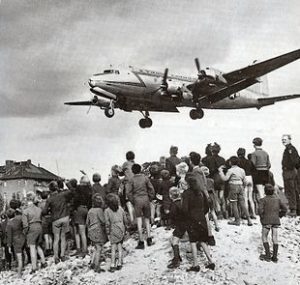 Given recent events, it is worthwhile to remember that on this day in 1948, we began one of the greatest humanitarian efforts in world history. Yes, there were geopolitical underpinnings to it, but having studied and research this event, there is no denying the unbelievably immense outpouring of effort, sacrifice and heart in the Berlin Airlift.
Given recent events, it is worthwhile to remember that on this day in 1948, we began one of the greatest humanitarian efforts in world history. Yes, there were geopolitical underpinnings to it, but having studied and research this event, there is no denying the unbelievably immense outpouring of effort, sacrifice and heart in the Berlin Airlift.
This effort had repercussions we feel to this day. If West Berlin had succumbed, there would be no unified Germany today. The Soviet Union might well still exist.
But it’s the people who made the different. The US and British pilots, aircrews, maintenance and logistics people who poured everything they had into keeping people in West Berlin alive.
After the Soviets blockaded West Berlin by land, the only way in was by several narrow air corridors. The airlift started slowly but then became an amazing feat of systems engineering that also affects air travel today. Many practices were invented that we still use.
The iconic photo of the children watching the plane come in low resonates. There were the “candy bombers” who dropped candy to those children as they came in. But as those who’ve been to Berlin know, many of these flights were made in horrible weather.
By the end, the US Air Force had delivered 1,783,573 tons of supplies and the RAF 541,937. Most of it was coal—Berlin winters are brutal. Over a quarter million flights were made. At its peak a plane was landing every 30 seconds.
17 US and 8 British aircraft crashed. 40 British and 31 Americans gave their lives in this effort. There is no greater honor than to sacrifice one’s life for others. And they did this for former enemies.
I believe the airlift shows us what we are capable of and what we should strive to return to. A decency and compassion for others that seems to be lacking today.
WE ARE BETTER THAN WHAT WE ARE NOW.


